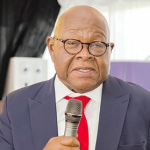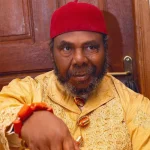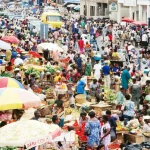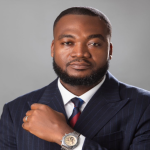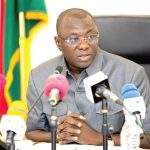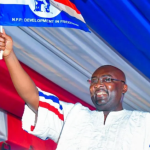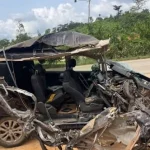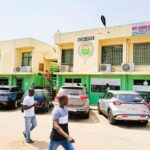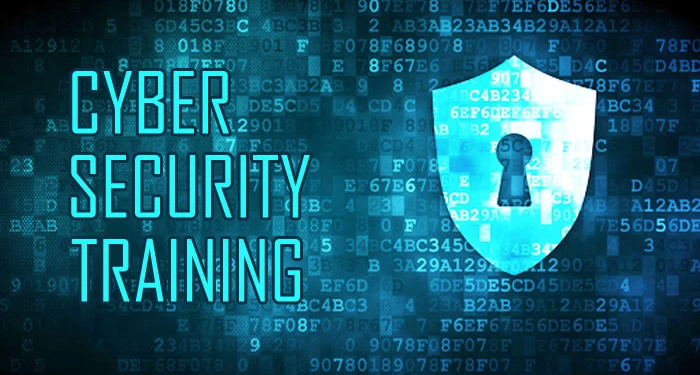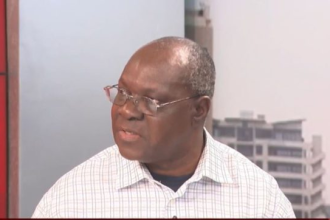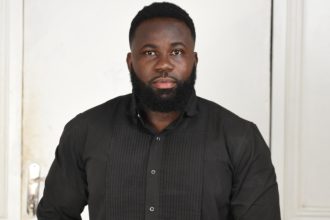Maybe 24 February, 1966, was the day Ghana had her freedom and independence led by Maj. Gen. Emmanuel Kwesi Kotoka, Lt. General Joseph Arthur Ankrah, Brigadier Akwasi Amankwaa Afrifa and others who organized the overthrow of the government of Osagyefo Dr. Kwame Nkrumah.
Maybe after 54 years ago, Ghana became the torch of inspiration for Africa’s liberation from colonial rule and its appendages, neo-colonialism – and Ghanaians began to see an industrialized economy and a free society void of massive socio-economic injustice, poverty, and hopelessness.
Maybe on this day, Ghanaians should be celebrating the misgovernance characterized by massive corruption, unprecedented levels of nepotism and excruciating economic hardship which are helping us to “resist oppressors rule.”
But, sadly, today actually marks a dark day in Ghana. February 24, celebrated by some reactionaries as Ghana’s Days of Liberation’ is, unfortunately, Ghana’s Day of Shame. It is said that the lapse of time cannot take place of evidence, and neither can it gather enough sand upon falsehood to equal with the truth.
In this epistle, I would like you to take the red pill to find out the historical truth about some of the calculated lies and unfounded allegations about the First Republican regime presided by Osagyefo, Dr. Kwame Nkrumah.
To begin with, in the JFK Ordeal in Africa, written by Richard D. Mahoney, it reveals that the National Liberation Council (NLC) was a brainchild of the CIA and British Intelligence which conspired with the traitors like JB Danquah and the officers among the army and the police to organize what has been held as the bloodiest coup d’état in the history of this country in overthrowing the First Republican government.
And, in the cases of State V. Otchere and Others [1963], as reported in the Ghana Law Report, it was held that some members of the United Party (UP) in exile, among whom, were Obetsebi Lamptey and the two other accused persons, held meetings in Lomé in the Republic of Togo where it was agreed to overthrow the Government of Ghana by unlawful means.
PREVENTIVE DETENTION ACT (PDA)
How did Ghana deal with these capital offences of terrorism? Each country in the midst of a terrorist crisis has a set of emergency laws that are similar to the PDA. In general terms, the concept of preventive detention has been in existence since British rule in India and elsewhere in other colonies. For example, the U.G.C.C leaders (the so-called Big Six) arrested after the 1948 riots in the Gold Coast were technically held in preventive custody and were neither charged nor tried.
Less than a year after independence, and after three defeats at the polls in 1951, 1954 and 1956, four prominent members of the U.P. were involved in either undermining the stability of the new Ghana or planning a coup to overthrow the C.P.P. government. In November 1957, only eight months after independence, S.G. Antor and Kojo Ayeke two leading U.P. supporters were arrested and charged with complicity in the Alavanyo riots in Transvolta Togoland, which took place during the independence ceremonies.
In 1958, Modesto Apaloo and R.R. Amponsah (General Secretary of the N.L.M., and later the combined opposition parties, the U.P.) were implicated in plotting the first coup in the new Ghana with Captain Awhaitey, Commandant of the Giffard Camp (now Burma Camp), and were also held to have been involved in the 1961 Kulungungu bombing.
By the fifth assassination attempt on Nkrumah’s life, a death toll of 30 Ghanaians, men, women, and children, had been recorded with the wounding of some 300 others. What is more, Richard D. Mahoney had made it clear that J.B Danquah and some of his family members were on the payroll of the CIA plot to overthrow the first Republic government. The state of the nation was in security turmoil, and the calls to avert these havocs caused PDA to be legislated in 1958.
Moreover, it important to know that after 1947, both India and Pakistan adopted prevention detention statutes to bring this long – standing practice within the purview of their judicial systems and constitutions. In the Indian Constitution, this comes under Article 22 – “Protection against arrest and detention in certain cases” specifically denies anyone held in preventive custody the fundamental rights set out in clauses (1) and (2). Article 22 Clause (3b) specifically states: “Nothing in clauses (1) and (2) [i.e. protection from arbitrary arrest and detention, the right to consult and to be defended by, a legal counsel of choice] shall apply to any person who is arrested or detained under any law providing for preventive detention”. (The PDA (Authors: Ekow Nelson and Dr. Michael Gyamerah).
The British adopted the preventive custody to quell the Mau Mau Uprising in Kenya. In the United Kingdom, for example, The Prevention of Terrorism Action (PTA), allowed for detention without trial, charge or access to legal counsel for a period, has been in force since the early 1970s. Since 9/11, both the US and UK governments have introduced anti-terrorist legislations, much of which has created a proactive and conducive atmosphere for preventive detention and some would argue, encouraged the flagrant breaches of human rights.
The UK’s “Anti-terrorism, Crime and Security Act of 2001” allowed non-UK nationals to be detained without charge or trial for an indefinite period of time, if the Home Secretary believed such a person was a national security risk and a suspected “international terrorist who could not be deported.
Perhaps, let us ask the revisionist historians why the NLC repealed the PDA, they put in place the Protective Custody Decree (PCD) to arrest people without trial? And when asked why Dr. Busia indicated in the inaugural speech on October 1st 1969 “there were 1377 political prisoners in jail…. The NLC took 1850 political prisoners,” they deliberately ignore?
In summary, Osagyefo Dr. Kwame Nkrumah is a hero of Africa. It will always follow necessarily that when you attack a hero, you become a villain. When you attack a villain, you become a hero. The conceited effort to dent the image of the Osagyefo Dr. Kwame Nkrumah with falsehood will always fly in the face truth. A lie, when told, is a confirmation of supremacy of truth. And it was truth in which Osagyefo Dr. Kwame Nkrumah said: “As far as I am concerned, I am in the knowledge that death can never extinguish the torch which I have lit in Ghana and Africa. Long after I am dead and gone, the light will continue to burn and be borne aloft, giving light and guidance to all people.”
Long live Osagyefo Dr. Kwame Nkrumah Long live Ghana Long live Africa And long live his legacy!!!
By: Michael Sumaila Nlasia
E-mail: marcusgarvey.snr@gmail.com
Phone: 0548455071



